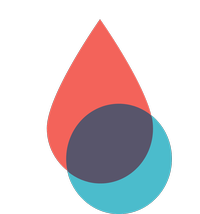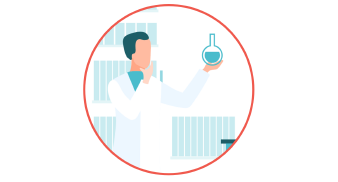Human biological samples sourcing:
from patients to lab bench
Biological samples, or specimens, are widely used in R&D for drug development and diagnostics assay development. Although many options exist to source common specimens, specific requirements, such as matching samples, conditioning status, or clinical requirements like mutations or population types can make sample sourcing dramatically time-consuming.
This is why Labtoo developed a tailor-made service to support Labs, Biotechs, Medtech, and Pharma companies in their procurement of samples.
Labtoo can be mandated in a fully customized mission to look for any type of human or non-human biospecimen, fresh biological tissues, Formalin-Fixed Paraffin-Embedded (FFPE tissues), or frozen. We work with hospitals, biobanks, and CROs to look for the best samples according to specific needs, with all regulatory and legal requirements handled.
As we do not use a catalog solution, our team will identify samples already in sample biobanks or biological sample collections, if possible, and compatible with the requirements of the project. A prospective clinical collection can also be started when necessary.
Select your type of biological samples requirement
Labtoo offers endless possibilities for samples sourcing. Contact the team for custom projects that require complex matching samples or rare specimen sourcing.

Cancer samples
After a biopsy or a resection, a tumor specimen can be used for research purposes, whether in fresh, frozen, or FFPE state.
COVID-19 samples
Find your nasopharyngeal swabs, respiratory tract biopsies, and blood samples from COVID-19 patients.
Healthy donor samples
Tissue and cells from healthy patients can be difficult to obtain, as no medical indication requires the collection of samples in this group. Adjacent healthy tissues can also be provided.
Labtoo offers endless possibilities for samples sourcing. Contact the team for custom projects that require complex matching samples or rare specimen sourcing.
Sourcing biological specimens from the most reliable clinical partners
Human biological samples are largely used in research and development. Every project has its own specificities, and it can be quite complex to identify the right source of samples, like a hospital or a clinical CRO.
The biological material transfer is subject to regulation, which add another level of complexity for R&D project leaders and delays for sample procurement.
Labtoo works with a full network of sources to provide flexibility and efficiency for any project
Our network of sources, including hospitals and CROs will work on projects that require fresh sample collections within the context of care procedures (such as fresh tumor resections) or specifically for the project (i.e. large blood volumes). These structures are able to perform clinical studies and sample collections, implement informed consent forms, ethical reviews, clinical team management, and regulatory authorizations. Clinical samples that have been collected for a given study may be stored and managed by a biobank for further treatments and usage.
For other projects, our team works with Biobanks (also known as biological resource centers), which are entities responsible for the management of biological samples and their associated data. These structures collect and preserve tissue samples or fluids in the form of biological collections from animals, plants, or humans. Some biobanks can be specialized in a type of biological sample: tumor bank, cell bank, blood bank, …
Biobanks are essential for biomedical research and have the capacity to conserve biological resources with different conservation methods: frozen tissues, blood samples, serum, plasma, PBMC in liquid nitrogen or -80C freezer, FFPE samples tissues at room temperature or at 4°C, depending on the type of samples and the future usage of the tissues.
What is included in our service?
Our team will handle your biological sample procurement from the beginning to the end
Perform a feasibility study by looking for existing samples already in collections & ready to be transferred
Set up a clinical biological collection and preparing contracts with sources
Assist the material transfer from the source to the lab, including treatments, QA or shipping, as needed
Do you need more information about collecting, stocking, or performing tests on biological samples?
Disease areas for human biospecimen
We are specialized in tailor-made projects for the pharmaceutical industry.
Select your options and start building your project.

How is a sample request made?
Collecting, receiving, and sending biological samples are regulated activities and must be declared and/or subject to authorization. The biobank or biological resource center assists external applicants in the structuring of their projects and their administrative procedures.
Setting up a biological collection
The first step in setting up a sample collection is to identify the partner(s) with both access to patients with the disease of interest, and also the technical capacity to collect the type of biological samples required.
Biobanks will typically be able to respond individually to certain requests and collectively to requests that require expertise or resources not available to them. This is particularly the case for specialized biobanks such as tumor banks, cell banks, serum banks, etc.
Since these are biological samples, the request must be motivated, clear, and included in a proposal that can be shared with the biobank. The required information generally relates to the nature of the project in which the biological collection is to be built up, the number and types of clinical samples desired, the processing and preparation of the samples for analysis, etc. The information should be provided in a clear and concise manner.
The biobank can decide for or against the setting up of the project; the files are submitted to a scientific committee, which must give its approval before proceeding with the project. If the project continues, a feasibility study is carried out to determine whether the biobank has the technical capacity for the application. A financial estimate, as well as the drafting of a contract, is carried out by the biobank in order to finalize the agreement between the parties. Finally, the biobank puts in place the internal operating procedure for the collection, reception, storage, and preparation of biological resources until they are taken over.
Access a pre-existing collection - availability
Retroactive sample release is a transfer of biological material to another organization (public or private) as part of a joint research program (research partnership). This partnership must be formalized by a research collaboration agreement or contract that defines the framework of the joint research between the partners and the use that will be made of the biological resources. Applications must also be motivated and included in a project, which will be submitted to a scientific committee or to the clinical manager of the biological collection for validation. These requests may concern tumor or non-cancerous samples, as well as blood cells in the case of regular requests.
Fresh biological tissues: how they are collected
In the context of patient care or within a specific collection study designed for a given project, it might be possible to obtain fresh biological samples. This is the case for instance with fresh tumor resection samples, that will go through anatomopathological analysis after surgery, then can be suspended in appropriate media and optimal temperature will be maintained.
Within a few hours after collection from the patient, and with the appropriate documentation, fresh samples may leave the hospital or clinical site and be sent to a laboratory for testing and analysis. It can also be used for cell culture to recreate the microenvironment of the disease. Thus fresh samples are often a very precious biological tool for research and development.
Types of providers for human biological samples
There are two major categories of biological resource centers:
Hospital structures
The majority of biobanks and BRCs are attached to a public hospital organization, which gives them access to clinical physicians and allows them biological collections from patients.
Service companies
Some private service companies may provide collections built up in the course of in-house projects or organize sample collections for clinical projects.
These two types of service providers differ in their public or private nature and their degree of specialization in a certain type of biological resources: cell bank, tumor bank, serum bank, etc.

